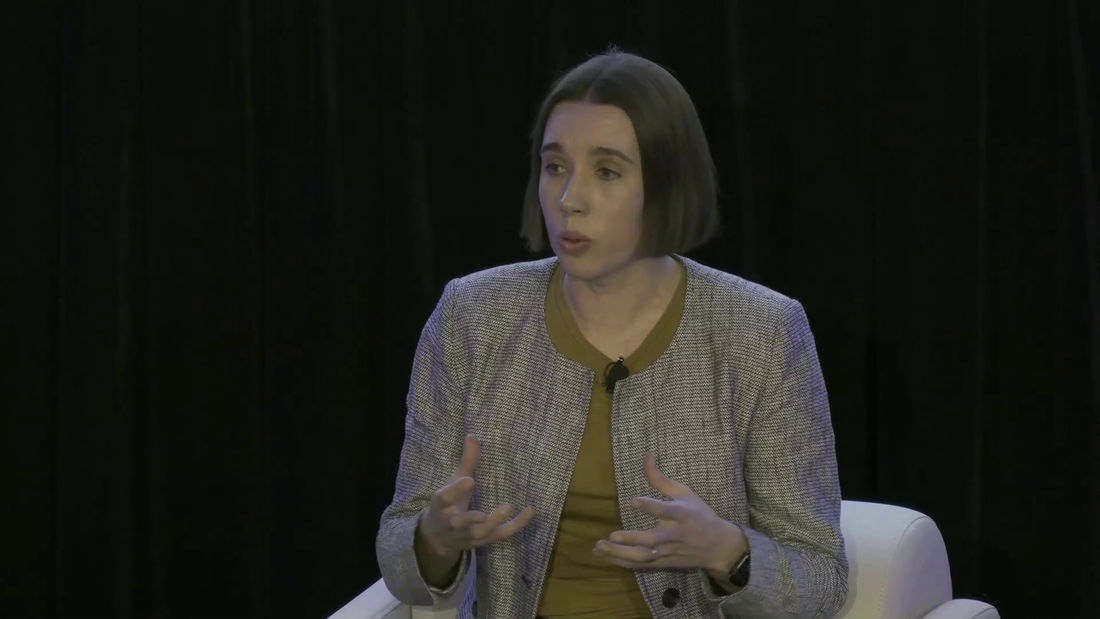Talking HealthTech: 383 – The role of technology in the maldistribution of the healthcare workforce in Australia

Source: talkinghealthtech.com

Provided by:
Talking HealthTech
Published on:
10 October 2023
This episode of Talking HealthTech was recorded live at University of Queensland during Taking Healthcare Everywhere – the launch of the The 2023 Philips Future Health Index report.
In this discussion, host Peter Birch is joined on stage by Dr Steve Hambleton, Jade Barclay, and Dr Rolf Gomes for a discussion on the maldistribution of the healthcare workforce in Australia and the potential of digital advancements, including artificial intelligence (AI) and remote care, to address the issue.
The panelists share their experiences and insights, highlighting the importance of trust in AI systems, the need for equitable healthcare across regional and remote areas, and the role of technology in bridging the access gap. The episode also explores the challenges in achieving widespread adoption of AI in healthcare and the potential solutions to overcome them.
A Paradigm Shift in Healthcare: Why Digital and AI Matter
The healthcare landscape is at a crucial juncture, where administrative inertia and glaring workforce disparities risk hampering patient care. The urgency for change is ever-present, focusing not only on localized healthcare solutions but also on technological advancements like Artificial Intelligence (AI) that can drastically redefine healthcare dynamics. At the heart of this change is the commitment to a more efficient and equitable health system that relies on digital transformation.

A United Front: Medicare and Healthcare Reforms
Two cornerstone reports, Strengthening Medicare Task Force and Recommendations From The Primary Healthcare Reform Steering Group, provide much-needed roadmaps for enhancing Australia’s healthcare system. They call for a unified health system, where the role of digital technology is more than ever crucial. Localised healthcare solutions, integration of National Disability Insurance Scheme (NDIS) providers, and dismantling siloed funding structures are high on the agenda. The key takeaway here is the fundamental necessity for system-wide collaboration.
The AI Revolution: Promise and Pitfalls
While AI holds transformative potential in healthcare, its adoption is not without challenges. On a global scale, AI is set to reshape healthcare by enhancing diagnostics, personalising care, and refining clinical decision-making. However, Australia seems to lag, with less than two-thirds of local leaders keen on investing in AI. This mismatch between potential and commitment raises questions about the future of AI in Australian healthcare, particularly regarding the issues of trust and data security.
The Regional Challenge: Healthcare Workforce Distribution
Australia produces a high rate of healthcare professionals, yet the workforce is unevenly distributed, leaving rural and remote areas deprived of vital healthcare services. The issue is akin to Earth’s water distribution problem—plenty of resources but not where they are most needed. Initiatives like longitudinal relationships with primary care providers have been suggested as a way to better distribute healthcare resources. The solution lies in system-wide changes to attract healthcare professionals to underserved areas.

Trust and Technology: Striking the Balance
The adoption of AI and other digital technologies in healthcare relies heavily on trust. While digital health records have seen increased trust during the COVID-19 pandemic, AI systems have yet to earn that same level of confidence. Strategies to build this trust range from focusing on enterprise-level AI models confined to specific hospitals to robust data security measures.
AI’s Practical Applications: From Radiology to Big Data
The scope of AI in healthcare extends beyond theoretical discussions. Real-world applications like AI-driven radiology demonstrate the immediate benefits of adopting this technology. AI algorithms can analyse large datasets to identify patterns and trends, adding an extra layer of precision to diagnostics and treatment plans.

The Equity Equation: Towards a Fairer Healthcare System
Equitable healthcare remains a challenge, further compounded by administrative hurdles and resource allocation. Tailored training programmes for healthcare professionals and investment in high-need, low-resource areas are critical. Digital solutions like remote care and home monitoring can significantly contribute to equity in healthcare. The empowerment of individuals through information and tools is another step towards a more equitable healthcare ecosystem.
Transform or Lag Behind: The Choice is Clear
As we forge ahead, the importance of digital transformation and AI in healthcare is no longer an optional upgrade—it’s an essential overhaul. The Australian healthcare system faces several challenges, from workforce distribution to investment in AI, but the promise of a more efficient, secure, and equitable future is within reach. Digital transformation is not just a buzzword; it’s an imperative for survival and success in today’s healthcare landscape.